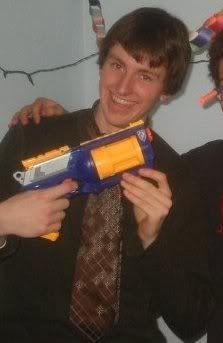ActionAid – ActionAid is an international NGO that is a huge supporter of RAAP.
(
www.actionaid.org)
EWB – Engineers Without Borders Canada is the organisation who sent me on this placement.
The group is comprised of a National Office Team and over 25 university chapters across
Canada (I am involved with the UNB chapter).
National:
www.ewb.ca UNB:
unb.ewb.ca
LEADEC – LEADEC is a Leadership Centre that RAAP is currently building. The idea is to train RAAP staff, directors, and others local NGOs on leadership techniques and facilitation skills in order to build local capacity. LEADEC is also where I am staying over the summer.
MDGs – The Millennium Development Goals, which the world agreed set in 2000 to achieve by 2015. They are the guiding principles of all development work everywhere in the world. (http://www.undp.org/mdg/)
MPH – Make Poverty History, the campaign which Engineers Without Borders wholeheartedly supports at that brought major awareness events such as the Live 8 concerts last summer. www.makepovertyhistory.ca www.makepovertyhistory.org/video
NGOs – Non-Governmental Organisations who exist independently of any government and are, ideally, not to be used or manipulated politically. They are not-for-profit charitable organisations who are committed to improving the human condition. RAAP, EWB, and OXFAM are all examples of NGOs.
OXFAM – OXFAM is a major international NGO, whose UK branch is RAAP’s main supporter. www.oxfam.org.uk www.oxfam.ca
Play Your Part – A campaign that EWB began this year whose goal is similar to that of MPH but that is unique to EWB and focuses on what Canadians can do to help. www.playyourpart.ca
PRA/PLA – Participatory Rural Appraisal or, more recently, Participatory Learning and Action. They are the methodology at the core of REFLECT and, consequently, RAAP’s work.
RAAP – The Rural Aid Action Programme is the local NGO that I am working with over the summer. They are based out of Hain and Jirapa, two towns in the Upper West Region of Ghana. Their website, which Jude and I are currently creating, is located at [not done yet]
REFLECT - REFLECT stands for REgenerated Freirean Literacy through Empowering Community Techniques and is a community development tool to help communities identify their development opportunities/issues and act on them. There's an entry on it here .
UNB – The
University of New Brunswick, where I am currently enrolled in the Renaissance College Interdisciplinary Leadership Program (minors in Math, Mechanical Engineering, and International Development Studies).
www.unb.ca



